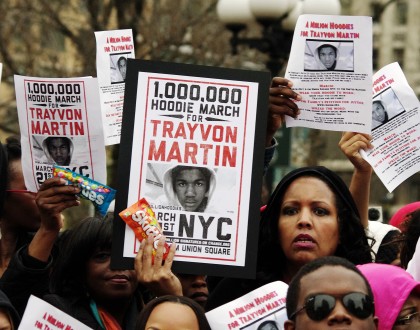A jury in Sanford, FL issued its verdict nearly two weeks ago, and still the op ed, social media and talk radio discussions of the case concerning George Zimmerman and Trayvon Martin continue. People passionately debate the particulars of the trial, the wisdom of stand your ground legislation, and whether the state prosecutors did a disservice to Trayvon’s parents, or even to every black teenage male in America. President Obama has focused attention on Florida’s stand your ground legislation and similar laws in other states. Interestingly, gun control faded into the background and was never really an issue in this case.
Our system of justice is imperfect. But Trayvon’s story and his fate are not really about the kind of justice one seeks in a court proceeding. Rather this story concerns principles embedded in the Constitution and the founding of our country equality, liberty, freedom, the pursuit of happiness.
And this story is about America’s continuing legacy of race and racism. Have you noticed that those offering legalistic defenses of George Zimmerman are white? Of course many white people are outraged and distressed about the verdict, but only white people are pointing out that a jury of his peers found him not guilty of the charges. Some even proclaim his innocence, as in, one is innocent until proven guilty, Zimmerman is not guilty, therefore, he is innocent. Innocence is a strange term to apply to a man who admittedly shot and killed an unarmed teenager, regardless of the circumstances.
An important part of this story is our difficult legacy of uneasy relations between races, and the fact the many Americans are still uncomfortable even discussing race and racism. Too few white Americans are aware of the privilege granted them by the paleness of their skin. Thus, they find it easy to ignore our continuing race legacy, and hard to understand the frustration and anger present in the black community. They don’t get it – or they choose not to – because they don’t have to. As a black person, I think about the consequences – good and bad – of my race each and every day. If I were white, I would not have to do so. I call this the privilege of race unconsciousness.
YWCA Boston has programs that can help all of us confront not only our own fears, biases and prejudices about racism and race privilege, but the systemic change needed to bring about a society and culture where the color of one’s skin does not strongly affect one’s life journey.
Demonstrations and righteous anger have their place. I’m for dialogue and the courage it takes to honestly engage.

